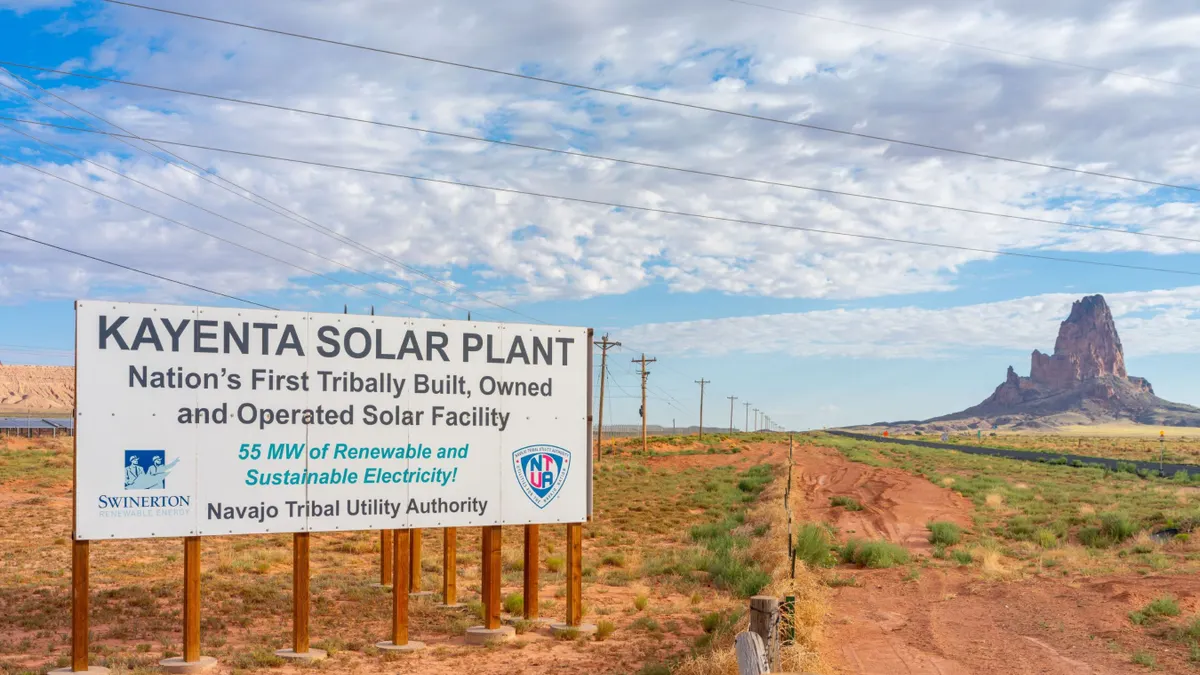As President Trump's administration prepare to levy tax cut reforms, other Congressional lawmakers are taking a different tack.
Several bills that would bolster energy storage are waiting in the wings this congressional season, signaling the growing significance of the resource.
“At this stage there are a lot of moving parts, but we expect multiple pieces of legislation related to storage and taxes to be introduced,” Matt Roberts, executive director of the Energy Storage Association said.
Chief among those bills could be one that failed to make it through the last congressional session, but will likely be re-introduced in the current session.
Sen. Martin Heinrich (D-NM) said he plans to re-introduce legislation in the current congressional session that would provide an investment tax credit for energy storage. He first introduced the tax credit in 2016, but it failed to pass out of committee.
The Energy Storage Tax Incentive and Deployment Act, which Heinrich’s office said will be introduced “in the near future,” would provide the same investment tax credit (ITC) for commercial energy storage installations as is currently available for solar energy in section 48 of the Internal Revenue Service code.
All forms of storage technology, from flywheels and batteries to pumped hydro and thermal energy, would qualify for the credit as long as they have at least 5 kWh of capacity. Qualifying projects could be consumer-owned, grid-connected, or off-grid.
The proposed legislation, co-sponsored with Dean Heller (R-NV), would also extend the ITC to residential applications of at least 3 kWh, but would apply only to battery storage systems.
How the storage ITC could work
The storage ITC would also have the same step-down provisions as the solar ITC, which provides a credit equal to 30% of cost of a solar system that begins construction through 2019. The ITC then steps down to 26% in 2020 and 22% in 2021. After 2021, the residential solar ITC drops to zero while the commercial and utility scale credit drops to a permanent 10%.
Storage can qualify for an ITC under current IRS rules, but only when installed in conjunction with a wind or solar power project. So battery storage systems installed after a solar system is in place generally cannot qualify for an ITC. Exceptions are made, but on a case-by-case basis.
The current ITC has had limited usefulness and appeal to storage developers. One impediment is the fact that the energy throughput to the battery must be 75% solar, which limits the usefulness of a storage system and can require specialized software.
The current ITC also “does not present a compelling use case for storage in terms of return on investment,” said Anissa Dehamna, associate director and principal storage research analyst at Navigant Research. The solar-plus-storage market is growing, but is still relatively small. Storage often finds more compelling uses in grid support applications.
The Heinrich-Heller ITC would support residential storage, which could help support the spread of distributed solar, but would also provide support for larger applications.
“Grid-scale energy storage will bolster system resilience during emergencies and outages, provide reliable supplemental services to the grid, and displace new investment in expensive substations and transmission lines,” Heinrich said.
Heinrich also sees storage as a way of attracting jobs to his state by supporting the growth of renewables, as well as fostering a local storage industry. He notes that storage devices are heavy, so it is often more economical for them to be manufactured locally.
“New Mexico is poised to become a major producer and exporter of clean power," Heinrich said.
A dedicated storage ITC would be “a boon to the industry,” said Dehamna. “It would give more comfort to investors and help to bring down the cost of capital.”
She also noted that the detail of any bill would be important, such as what kind of technology would qualify as storage, how narrowly or widely the definition of storage would be applied, and whether or not a developer could take a portfolio approach and qualify for a credit by aggregating projects at multiple sites.
“Momentum on the subject has been building for a while,” said Roberts, “but it could take different forms.”
He cited several other bills with a financing or tax component that would bolster energy storage, such as the National Infrastructure Development Bank Act of 2017 (H.R.547), the Securing Energy Infrastructure Act (S.79), or the S.T.O.R.A.G.E Act (H.R. 6286), which would have states “consider requiring” energy storage in their supply side resource planning.
“With the White House highlighting storage in its infrastructure policy priorities—along with wind and transmission infrastructure among other topics—and an increasing number of supporters in Congress, we are confident that these bills can get due consideration,” Roberts said.
He also noted that the Energy Storage Association is going to be launching Advanced Energy Storage Caucus in Congress later this month that will expand to the Senate the effort launched in the House last year with the Battery Energy Storage Caucus.
Could bipartisanship rise over storage tax credit?
Right now, energy storage is enjoying “fairly broad partisan support on Capitol Hill,” said Timothy Fox, a vice president at Clearview Energy Partners. Fox also noteed that the Trump Administration has signaled an interest in storage projects in its recent priority list of emergency and national security infrastructure projects.
But broad support—the bill had about 30 sponsors when introduced last year—may not be enough to get the Heinrich-Heller storage tax credit bill across the finish line.
Fox sees several barriers to Congress passing an energy storage tax credit bill.
“Legislation to support emerging energy technologies does not appear to rank as a high priority high between the GOP or the Trump Administration,” he said. In addition, creating a new tax credit conflicts with the tax reform priorities of the administration and Congress.
Some Republicans may be interested in drafting new energy legislation in 2017, but it is not at the top of the Trump administration’s list of priorities, which are more tightly focused on immigration, tax reform, healthcare reform, and winning approval for a new justice in the Supreme Court.
Fox also questions whether or not a storage tax credit would be sufficient to attract Democrats to an energy package that would otherwise likely lean in favor of Republican priorities like expediting infrastructure such as natural gas pipelines and reversing or weakening regulations for the electricity, oil, gas and coal sectors.
“The best prospect for a storage tax credit in the 115th Congress could be its inclusion in a broader energy reform package, such as those considered during last Congress,” said Fox.





















